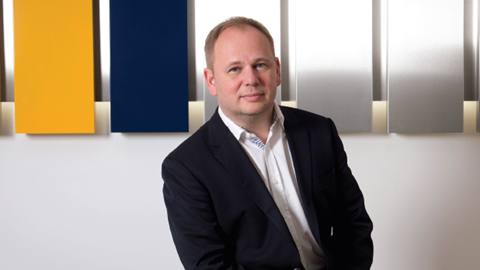Oxford Properties’ takeover of M7 Real Estate will help turbo-charge a period of rapid European growth for both companies.

‘We are focused on deploying capital at scale, and I am really excited,’ says Oxford Properties’ European MD Jo McNamara, describing her group’s business plan which now includes owning M7 Real Estate, the multi-let specialist asset/investment manager.
In the next five years, her target is to double the C$10 bn (€6.4 bn) European portfoIio.
It’s a contrast with the previous few years when Oxford, the property arm of Canadian pension fund OMERS with C$80 bn of assets globally, has been a relatively slow investor in European property. The reason was partly because ‘we thought the market was toppy’, she says, but it also had a lot to do with laying the necessary groundwork to rebalance from large-scale, liquid assets such as offices in London, Paris and Berlin to deploying into ‘accelerating sectors’ via investing with specialist platforms.
Get Living, the UK build-to-rent institutional residential company that Oxford invested in with Delancey in 2018, was the first example when ‘we really focused on the customer and macro-drivers of occupational demand’, she explains. Alongside residential, Oxford’s other high-priority, macro-driven sectors are life sciences and logistics - which is where M7 comes in.
The price to acquire the much smaller M7 is being kept confidential. M7’s turnover in the year to 31 December 2019 was almost £89 mln, with pre-tax profit of £46 mln and a net asset value of £82.2 mln. Executive chairman Richard Croft says: ‘In 2020 we didn’t quite meet our 2019 turnover or profits, due to the Covid pandemic. But the business was still strong and we had a very good year under the circumstances.
‘The deal we have struck with Oxford is very much geared towards the future, so that M7’s management remains incentivised.’ Croft and M7 were advised on the sale by Eastdil Secured.
Premier league
He believes Oxford’s ownership means M7 can now shoot to more than double 2020’s circa €4 bn AUM and take the business from the ‘second division to the premier league’ of European third-party investment managers. McNamara says she expects Oxford itself to invest between €2 bn and €3 bn in future M7 investment strategies. At the same time, adds Croft, ‘we believe being part of Oxford and OMERS can open more doors for us’ in terms of new capital sources.
Oxford’s clear objective for its logistics ambitions is to boost the sector from 5% of the European portfolio ‘to 20%-25%’.
‘To be honest, we have struggled to invest in logistics,’ McNamara continues. The 5% is mainly Oxford’s investment in big box assets through GLP’s develop-to-core fund, ‘and that will continue: the fund is about three years into a 10-year life’, she says.
‘We like the big box development. But we have a strong conviction in last-mile logistics. The supply chain has changed so much - even more with us all being at home because of Covid - and the consumer is effectively part of that supply chain. We believe urban logistics is an area where there is going to be longer-term growth and so few can play in it at scale.
‘So we realised we needed a strong team on the ground and we looked at a number of different transactions before the deal with Richard’s team.’
Small but swift
M7 may be relatively small but it is a swift and busy value-creator, now transacting across 14 countries. Croft’s team has been the lynchpin in many deals but perhaps most impressive is its role creating one of Europe’s behemoths: Mileway, Blackstone Group’s circa €11 bn light industrial and urban logistics investment company.
In 2019, as a result of €4.9 bn of assets being internalised in Mileway on its incorporation, M7 earned a fee of €36.4 mln. The firm’s retainer to acquire assets for Mileway runs until 1 October 2021 - at which point it will switch to deploying Oxford capital in this sector.
M7’s leading position in the property community’s favourite asset class is the culmination of years of belief in light industrial’s income-producing merits and the firm’s expertise in the sector which was earned long before the insatiable demand from e-commerce caused these assets to rocket in value.
Croft, who with other senior management ‘is totally dedicated’ to staying at M7, remains convinced that the sector has further to run over the next 5-10 years. ‘There isn’t enough urban logistics or light industrial to accommodate the growing supply chains, which are only going to get bigger,’ he says. ‘And in Europe you have a substantial restriction of land which properties can be built on. It seems highly likely there will continue to be a climb in value in industrial assets.’ He should know.










